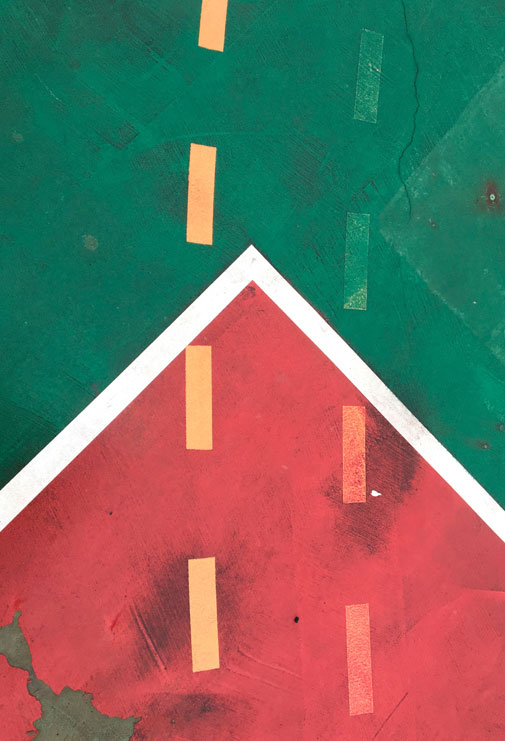- Vol. 07
- Chapter 06

In The Red Zone
“My parents are in the red zone,” she explains at work. They spin in their office chairs to face her. They don’t know what to do with their faces. At lunchtime, she starts clearing out her desk. Something inside her ignites when a colleague says, “This is really getting serious now, isn’t it?” She thinks about a recent museum visit with a friend – about Evelyn De Morgan’s Cassandra pulling at her own flaming hair. The knowledge that she will continue to be seen as alarmist sits in her, like the stone in soft fruit.
They close the office the following day.
She tries to take her daily walk as early as possible. The just-morning sun is like cold butter. She passes under frothy blossom, exchanging strained smiles with the few who are also outside. Everyone gravitates towards the small patch of green, threaded between grey towers. From her balcony, they look like blocks strewn across a carpet by an angry toddler.
When she’s inside, she longs to be outside. Fidgety, slowed by tiredness, breathing shallowly and trying to take comfort in being safe. When she’s outside, she’s gulping in air and staring at new leaves, trying to remember this is all real. Trying to forget it, as well.
“My friends in California told me they’re calling it Shelter In Place. It sounds a lot better than lockdown, right?” Her husband nods, chopping an onion. She thinks about her parents. Tries to find the focus to put away laundry. Quietly goes into the bedroom. She is all angles and edges. She curls into the corner between the bed and the wardrobe. It is hard to give one another space.
She is caught between wanting to cry for the release, and refusing to give in, for fear she won’t be able to stop. They chew their dinner slowly and glance at one another when a siren howls past the window.
In The Red Zone
The volunteers have divided up their area into seven smaller slices. She follows links, clicks through group after group, nested within one another like Russian dolls.
“What’s your postcode? Which street are you on?”
She gives her answer. Waits.
“You’re in the red zone.”
She types a reply quickly, heart in her throat: “Red zone?”
Their response explains gently – they have colour coded the different coloured zones in their area. To speed up access to help. To make sure everything is as local as possible. “Oh, I thought it was a government red zone, like at home,” she replies lamely. She is too tired and sad to feel foolish.
A bizarre grain of comfort, like sleep grit in the corner of an eye. Colour-coding bringing her closer to them.
